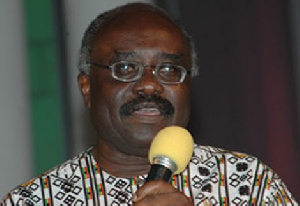Former Chief Executive of the VRA, Dr. Charles Wereko-Brobbey, says Ghanaians must be ready to pay more for electricity to avoid dumsor.
He explained that if Ghanaians do not pay more the utility providers and power producers may face challenges in keeping the lights on.
"They must be prepared to pay more otherwise if you do not pay more and utility providers incur losses one day the lights will go off and never come back because the machines are spoilt and there are no spare parts to repair them."
"So you leave in darkness or pay for it. But they should be prepared to pay more and hold the power authorities to account in terms of the reliability of the power supply."
Meanwhile, the Public Utility Regulatory Commission (PURC) is in a crucial meeting with utility service providers on the proposed tariff increment.
READ ALSO : Ghana faces eminent dumsor- John Jinapor
The Electricity Company of Ghana had proposed that its tariffs be increased by 148% for 2022 and with 7.6% average adjustments between the periods of 2023 to 2026.
The proposed sharp increment, according to ECG, is due to the gap between the actual cost recovery tariff and PURC-approved tariffs as well as the cost of completed projects.
The Ghana Water Company, in a similar document, is also proposing an increment in its tariffs to be able to at least recover its operational cost.
Some observers have said the amount consumers pay for electricity is woefully inadequate to sustain the operations of the ECG.
These proposed increments are coming at a time of great controversy over high cost of living and worsening inflation.
But the service providers maintain that the increment is necessary to keep them afloat.
The GWCL argues that while the average tariff per cubic metre in 2019 was 1.27 USD, the same was reduced to USD 1.13 as a result of cedi depreciation.
The GWCL argues that this has affected its ability to carry out repairs and replacements of aged and obsolete equipment and pipelines.
For the GWCL, the current domestic tariff of GHS3.29 per cubic metre to consumers within 0-5 cubic metres is less than what the poor in rural areas pay, which is about GHS10.
To justify its case for the increment, the Ghana Water Company Limited says it is saddled with a monthly loan payment of $7.93 million which is 47.15 percent of its average monthly revenue.
The GWCL says it has no option but to recover the loans through tariffs.





